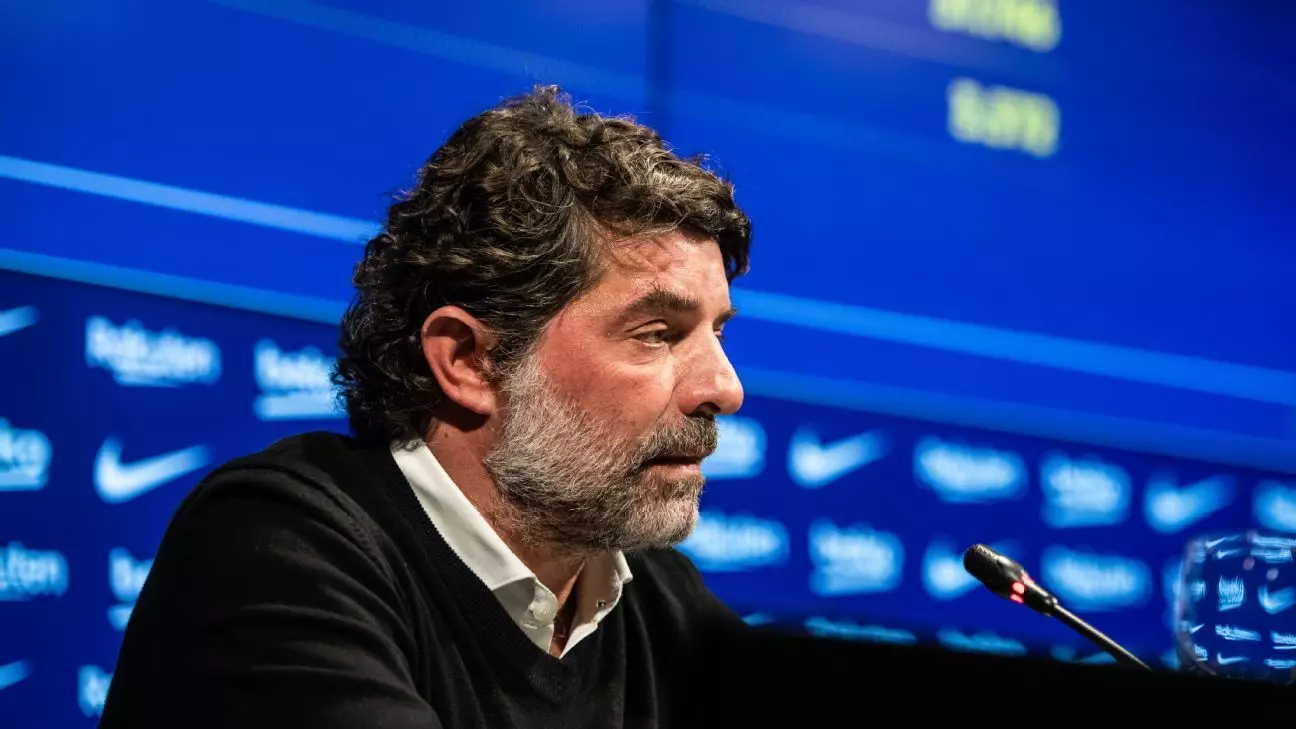The recent resignation of Barcelona’s vice president, Juli Guiu, has raised eyebrows in the football community, particularly given the circumstances surrounding his departure. Guiu, who stepped down for what the club described as “personal reasons,” has been an influential figure at the club since he joined the board in 2021. His exit comes at a tumultuous moment for FC Barcelona, highlighting underlying tensions related to major financial dealings and strategic decisions that will have lasting implications for the club’s future.
Reports suggest that Guiu’s resignation is closely linked to the club’s new multi-year agreement with Nike, projected to be worth over €100 million annually. It appears that Guiu found himself at odds with both the terms of this lucrative deal and certain negotiation processes. While the club touts this partnership as a groundbreaking financial milestone, Guiu’s dissent hints at deeper concerns regarding managerial transparency and the alignment of interests among club executives. The details around the commission paid to agent Darren Dein, who facilitated the negotiations with Nike, reportedly also led to Guiu’s discomfort and eventual sidelining during talks.
Despite his resignation, Guiu’s contribution to FC Barcelona cannot be understated. He played an integral role in securing significant sponsorships, most notably the partnership with Spotify, which has since become the primary sponsor for the club and has acquired naming rights for the historic Camp Nou. His expertise in marketing had a tangible impact on enhancing the club’s financial sustainability during a challenging economic period. However, his departure casts a shadow over the effectiveness of these initiatives, calling into question whether the gains are secure in light of internal disagreements.
The discontent surrounding Guiu is not an isolated incident. FC Barcelona has been grappling with numerous off-field issues that could shape its operational future. The recent decision by Spain’s sports ministry to allow temporary player registrations, particularly for Dani Olmo and Pau Víctor, has sparked outrage among rival clubs, revealing fractures in the oversight and governance of player compliance. LaLiga and the Spanish Football Federation (RFEF) have taken a stand against this decision, claiming Barcelona failed to meet financial fair play regulations, further complicating the club’s standing in the competitive landscape.
Juli Guiu’s resignation brings to the forefront the challenges FC Barcelona faces as it navigates a changing financial environment and attempts to preserve its storied legacy. As the club continues to negotiate its operational strategy amid external pressures and internal discord, the implications of Guiu’s departure may reverberate far beyond his tenure. The board’s ability to manage relationships with partners and to instate a cohesive strategic direction in the wake of this leadership challenge will be critical for the future health of FC Barcelona.

Leave a Reply